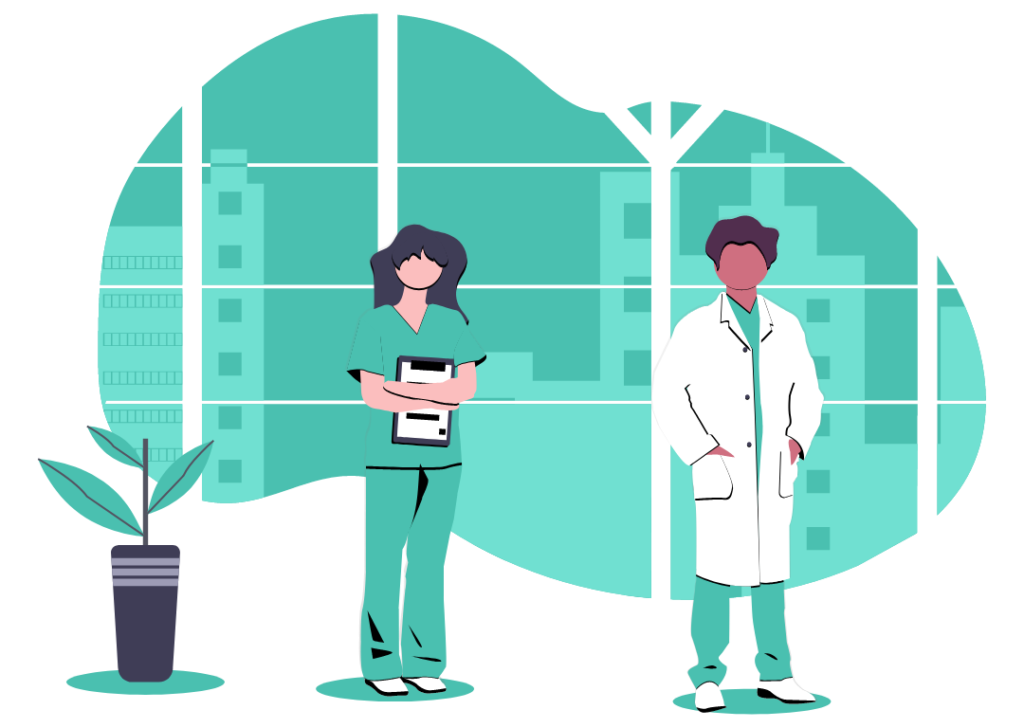
Don’t Stop Asking Questions
Kathleen is a hospice nurse who finds fulfillment in comforting families in their most difficult days.

After caring for her grandfather at the age of 14, Catt realized that her natural ability and compassion could lead to a career in elder care. She shares the difficulty of staying professional while treating patients with compassion, the importance of hospice, and why it is so important for families to come together and prioritize their loved one's needs. This is Catt's story.
Hi! My name is Catt and I’m a Millennial woman living in California. I’ve been working in the elder care industry for 4 years and worked with Hospice/Palliative patients for about 2 years. I currently work for an independent living community as an administrative assistant and activities coordinator. I hope to open my own assisted living facility someday.
When I was 14, my paternal grandmother was diagnosed with Alzheimer’s. She was in her late 80s and was this amazing, beloved member of our family. So of course we wanted her to be able to stay at home and in an environment where she felt safe and happy for as long as possible.
My parents hired caregivers to help, but unfortunately her condition declined fairly rapidly over the next couple of years and she ended up passing away from complications surrounding a broken hip. During that entire period, her caregiving and eventually hospice team were the most kindhearted, strong, and wonderful people we could have possibly had helping us through a very difficult time.
A few years later my maternal grandfather also passed away in his home after a long battle with kidney disease during which he had full time in-home caregivers and hospice nurses. After that, my maternal grandmother was diagnosed with Dementia and needed full-time care until her passing last December 2019.
I’ve helped and seen my elderly loved ones cared for correctly at the end of their lives for almost 15 years at this point. Caregiving is a role that I found myself helping out with at a young age and that I truly enjoy doing.
I think the biggest challenges in this line of work fall into two categories on opposite ends of the spectrum.
The first is being able to open up and be this person that someone else is fully dependent on. Putting aside your own feelings of discomfort or fear or sadness and being a rock for this person who is dying or losing control of their body or their mind. Being there for their family is really tough, and it takes a lot out of you as an individual.
The second side of it is maintaining professionalism and not getting too swept up in the lives of your clients because you are very close to them during what is an incredibly difficult time in their/their loved ones’ lives. It’s easy to overstep when you’re trying to be helpful. Being able to maintain a very professional yet compassionate attitude towards people who are going though all the stages of grief, on a daily basis, with multiple clients, is definitely challenging.
I’ve learned that I am resilient, compassionate, and strong. I can offer strength to others through my ability to control my emotions and adhere to industry standards that allow patients and their loved ones to accept the reality of their situations.
I’ve learned that no matter how strong or prepared you are, we all experience grief over the loss of human life. It’s a reaction that is real and valid and raw, but going through the process is so integral to understanding ourselves and thus being able to build emotional infrastructure in order to handle it with grace and dignity.
I’ve learned that it’s perfectly normal and natural to break down and cry when a client passes. It is even essential to the process. It’s also okay to reach out for help when you’re feeling like there are cracks in your reality.
The way I explain the importance of hospice is generally by recounting my own experiences with my loved ones who have been on hospice in a professional yet empathetic way. It’s important not to over share and make it about yourself, and to listen to questions and concerns, but to have some answers prepared that cover the subject matter in a way that is reassuring.
Generally there are multiple hospice options available within a county, and often each offers different levels of specialized care. Sometimes it’s just medical care, but if patients/families need services like grief counseling, family caregiver support, art/music therapy (for chronic fatal conditions), spiritual support, those are all services that exist and that companies will disclose during the assessment process.
If families are feeling lost or overwhelmed, it’s best to contact a larger placement company who will have knowledge of what organizations offer what types of services and which are covered by insurance, if that’s a factor.
My advice would be to have a meeting with everyone who wishes to be involved in the process. Ultimately, it will end in your loved one’s passing so the earlier you all can organize your individual feelings and desires surrounding the process, the better.
It’s not easy, so don’t force it, but understand that the dying process is not yours to control. It is your loved ones, and they deserve dignity and respect. All you can do is offer that to the best of your ability without burning yourself out in the process.
Be gentle with your own emotions and mental health during it, and prioritize understanding when to step away and recharge or reset. The best resources are going to be medical professionals, so if financial strain is an issue there is always a medical social worker at the local hospital that can assist you in taking the right steps usually free of charge. Placement companies are also a great resource, but do charge a fee.
Hospice care is an industry that heavily vets their employees, but if you ever have a negative experience, it’s extremely important to report it. Clinicians experience burnout at high rates and for their own sake, as well as your loved ones, it’s crucial to report any instances of unprofessional behavior to the company.
If you have a disagreement with a clinician, you are completely within your rights to tell them to leave and request they be taken off the case. Your emotions and well-being are a valid and important part of the patient’s dying process, but shouldn’t take priority over your loved one’s care.
For clinicians, take care of yourself first and foremost. At the end of the day, you are only a variable in the reality of the situation, and can only contribute positively to the best of your ability, not control the natural and inherent course of things. If you see something, say something, but also be gentle with yourself. Death is an essential part of life and in choosing to be an advocate for building up the notion that it doesn’t have to be altogether tragic. You are doing something beautiful for your fellow humans. Embody love and light for those who need it most.

Kathleen is a hospice nurse who finds fulfillment in comforting families in their most difficult days.

As Joy was mourning the loss of her father, her mother was diagnosed with cancer and required emergency surgery.

Lickety's father cared for her mother when she was diagnosed with vascular dementia. Then he suddenly passed.